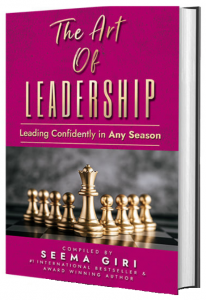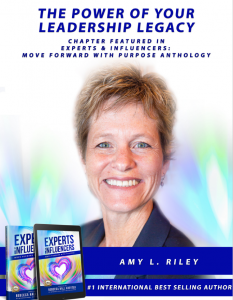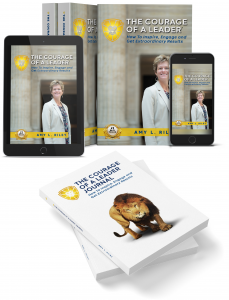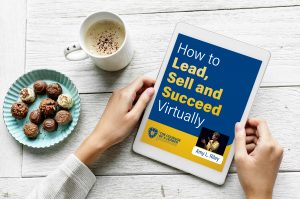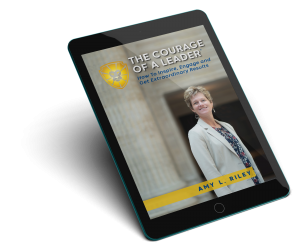How can we be more productive? How can we operate at a higher level?
Gerald J Leonard is here to tell us how; and as a certified project management professional, a certified portfolio management, professional, a certified IQ coach, and a highly accomplished professional he is very qualified to do so!
About the Guest:
Gerald J Leonard offers a unique productivity approach to accomplishing more every day.
Gerald J. Leonard PMP, PfMP, and a C-IQ Coach; he’s the Publishing Editor, CEO,and Founder of the Leonard Productivity Intelligence Institute, as well as the CEO of Turnberry Premiere, a strategic project portfolio management and IT governance firm based in Washington, DC. Gerald is also an Author, TEDx Speaker, Management guru, and, importantly, a Bass player. He brings all these traits and skills into his presentations and interviews. Gerald is the author of A Symphony of Choices (A Business Parable), Culture Is The Bass, and Workplace Jazz.
About the Host:
Amy L. Riley is an internationally renowned speaker, author and consultant. She has over 2 decades of experience developing leaders at all levels. Her clients include Cisco Systems, Deloitte and Barclays.
As a trusted leadership coach and consultant, Amy has worked with hundreds of leaders one-on-one, and thousands more as part of a group, to fully step into their leadership, create amazing teams and achieve extraordinary results.
Amy’s most popular keynote speeches are:
· The Courage of a Leader: The Power of a Leadership Legacy
· The Courage of a Leader: Create a Competitive Advantage with Sustainable, Results-Producing Cross-System Collaboration
· The Courage of a Leader: Accelerate Trust with Your Team, Customers and Community
· The Courage of a Leader: How to Build a Happy and Successful Hybrid Team
Her new book is a #1 international best-seller and is entitled, The Courage of a Leader: How to Inspire, Engage and Get Extraordinary Results.
https://www.linkedin.com/in/amyshoopriley/
Resources mentioned in the podcast
The Inspire Your Team to Greatness assessment (the courage assessment).
How can you inspire our team to be more proactive, take ownership and get more done?
You demonstrate and empower The Courage of a Leader. In my nearly 3 decades of work with leaders, I’ve discovered the 11 things that leaders do – even very well-intentioned leaders do – that kill productivity.
In less than 10 minutes, find out where you’re empowering and inadvertently kills productivity, and get a custom report that will tell you step by step what you need to have your team get more done.
https://www.courageofaleader.com/inspireyourteam/
Gerald Leonard Resources for The Courage of a Leader listeners
https://geraldjleonard.com/courage/
Thanks for listening!
Thanks so much for listening to The Courage of a Leader podcast! If you got inspired and/or got valuable leadership techniques you can use from this episode and think that others could benefit from listening, please share using the social media buttons on this page.
Do you have questions or feedback about this episode? Leave a comment in the section below!
Subscribe to the podcast
If you would like to get automatic updates of new The Courage of a Leader podcast episodes, you can subscribe to the podcast on Apple Podcasts. You can also subscribe in your favorite podcast app.
Leave us an Apple Podcasts review
Ratings and reviews from our listeners are extremely valuable to us and greatly appreciated. They help our podcast rank higher on Apple Podcasts, which helps us ignite The Courage of a Leader in more leaders! Please take a minute and leave an honest review on Apple Podcasts.
Teaser for next episode
How do you strategically and intentionally build your network and scale your impact, AND still have the connections feel genuine and natural?
Tune in to our next episode, The Human Advantage: The Power of Personalizing, Systematizing and Cross-Evangelizing to Grow Your Impact, with guest Damon Burton to find out!
Transcript
How can we be more productive? How can we operate at a higher level? My guest today, Gerald J. Leonard is here to tell us how. And as a certified Project Management Professional, a certified portfolio management professional, a certified IQ coach, and a highly accomplished professional himself, he is more than qualified to do so. I am glad you're here to hear these hidden gems of productivity.
Amy Riley:Welcome to the Courage of a Leader podcast. This is where you hear real life stories of top leaders achieving extraordinary results. And you get practical advice and techniques, you can immediately apply for your own success. This is where you will get inspired. And take bold, courageous action. I'm so glad you can join us. I'm your host, Amy Riley. Now, are you ready to step into the full power of your leadership and achieve the results you care about most? Let's ignite the Courage of a Leader.
Amy Riley:Gerald , thank you for being with me on the courage of a leader podcast today.
Amy Riley:Gerald J Leonard: Amy, thank you so much for having me. I'm really excited to to have this conversation with you.
Amy Riley:I am too I love working on myself and with others about productivity and efficiency. And yeah, how can we work smarter, not harder. So you have project management and portfolio management experience, you understand the dynamics of high performing teams. So I know you have access to when you think about and talk about a variety of paths for productivity. And I know today we want to get beyond the typical time management and priority management strategies that we that we might hear about. So how do you help leaders see the hidden gems of productivity that they haven't seen before? Sure,
Amy Riley:Gerald J Leonard: I'll be happy to share that, you know, I share with them interesting enough, what I learned as a musician, as a kid. And what I mean by that is there are certain things when I started playing music, and I guess it's 10 to 11 years old. And that I began to take in that I over time started realizing that and when I switched careers or changed things. And I was able to grow myself in a new area, a new industry a new avenue, whether it was becoming an author or a CEO, or the project program, portfolio management expert or Microsoft person, and so on, I realized I was using the same strategies, okay. And those strategies were one deliberate practice is being proactive and focused on deliberate practice. Number two, it was having a coach might having a mentor or coach who was more like a tour guide, and not a travel agent. And then having a band. You know, when you're when you're in a band, you know, everyone's playing a different instrument, but they're all focused on playing a particular song. Or if you're in an orchestra, they're all playing a specific piece. And everyone's on the same page. There's, they're talking the same language, and you're sharpening each other's skills. And so I realized that those three elements of that I learned as a kid, why music have served me throughout my career.
Amy Riley:Yes, I love your analogies to music as someone who's played a couple of different instruments, I really relate to it. What so let's start with deliberate practice. That's where you started. I think this is interesting. I often tell people, we're ready for what we're trained for. Right? I do long distance races, and people will say, how can you do that distance? Because I've been training for it. Exactly. It's like the day that I step up to an ultra marathon start line if someone said, run your fastest 5k Today, I couldn't do it. i That's not what I'm trained for. So when we're talking about productivity, what do we want to deliberate practice?
Amy Riley:Gerald J Leonard: Well, you know, when, when productivity you want to deliberately practice, it's really starts with a mindset of two things. Growth and being proactive. Okay, right. It's growth and being proactive. What productivity is not that is being so busy that you don't have time to breathe, you don't have time for yourself, you don't have time for your family, you don't have time for your health, you know, that's the opposite of productivity, because in the end, you're going to burn out, and you're not gonna be productive in the long run. But what I learned was that deliberate practice by thinking through that if I'm going to work on a piece of music, or if I'm going to learn a song, I'm going to think about what do I want to develop? And how do I want to grow with this? When I was in college, you know, I studied classical and jazz music, there were pieces that my professor would give me or my coach would give me that were really complicated. And some things I could play really easy. But some passages were very difficult. And so I would have a practice session where I go into a room and I'd say, I'm gonna practice for 30 minutes, but I'm only going to work on that part, that was really difficult. And I would slow it down and play it very deliberate and make sure I got every note, then I would try to speed it up and see if I could play it really fast, then I would play it to make sure I did all the bowings or however the fingerings were. And then after doing that, so many different iterations, I would now play the piece. And when I got to that section, I went right through it. And it felt comfortable, because I deliberately took time to focus on improving in an area that was difficult. I think as you as a runner, you know, you as you're practicing running, you probably get to a place and go, Okay, this is a little bit more challenging once I hit this mile, or this point. So I'm going to get myself to that point. And I'm going to practice getting better in that space where I'm out of breath, or I'm feeling this way or feeling that way. So that your body gets used to it, and you can push past it, and it becomes something where you're become comfortable. And so a part of deliberate practice also is embracing being uncomfortable. Because anytime you're saying you want to grow and change, you're doing something that you're not used to doing. And normally when we do something we're not used to doing. The first thing we're going to do is we're going to do it poorly. Yes. And that's okay.
Amy Riley:Yeah, I love this Gerald with the mindset that we have a growth mindset, right, like not only do what do we want to grow and produce and make happen in terms of results for the project, or the organization or the client? But also how do we want to grow and develop? What skills are we taking on? And that digging in, where it's not working? Right? Like, oh, we're not getting the monthly reports out on time, or the coordination between these departments is not working right? And actually getting uncomfortable and look at what's going on there and talking to all the people are observing, you got to take that time in the short term, exactly. productive in the long term. Exactly.
Amy Riley:Gerald J Leonard: And you know, the best organizations in the world practice something called Chi Zan, and they allow everyone in the organization to pull the cord, if you will, to say, wait a minute, this process that we're working on, there's a problem with it. And the team comes together, they put their brains together, they mastermind around it, and they figure out how to optimize that particular process. Now they pull the cord and everybody goes back to work. But that area that was a challenge has gotten better. And it's the mindset of continuous improvement. Yeah. Right. And so when the what has to happen is that one, you got to start, right, you got to start planning, you got to start practicing, you got to start running, you got to start the process. But then as you're doing it, realize that when you first start, like learning to speak a language or learning to play an instrument, you're going to do it poorly. And that's okay. Yeah. But if you get comfortable being uncomfortable and continuing working on it, and deliberately, you know, going after it, then you can, you can improve in a market way and you will see progress. And here's the goal of your goals. The goal of your goals is who do you become, once you achieve that goal? Because you have to elevate yourself and grow your neural network, your your biology, your kinesiology, your physiology, your mindset, you have to grow to a certain level to start producing at another level. And what happens is that if every if they took everything away from you after you grew yourself, you get it right back, because the goal was not accomplishing this thing, or how much money you have in the bank or the job or the promotion. It was Who did you become that you pull those things into your life and now You are now playing at this level. Yeah.
Amy Riley:You've got mindsets and thoughts and beliefs that are more readily available. Yeah, exactly. Yeah, you changed your practices, you might be more comfortable having tough conversations or digging into an issue, because you know the benefit. Once you do that, that dig in, and you come out the other side.
Amy Riley:Gerald J Leonard: Exactly, exactly.
Amy Riley:Gerald, let me pause you here for a moment and tell our listeners more about you. And we're going to find out why we want a tour guide, not a travel agency. Metaphor. Gerald J. Leonard offers a unique productivity approach to accomplishing more every day. Gerald is a Certified Project Management Professional, a Certified Portfolio Management Professional and a certified IQ coach. He's the Publishing Editor, CEO and Founder of the Leonard Productivity Intelligence Institute, as well as the CEO of Turnberry Premier, a strategic project portfolio management and IT governance firm based in Washington, DC. Gerald is also an author TEDx speaker, management guru, and importantly, a bass player. So you see why he is completely qualified to have this conversation. He brings all of those traits and skills into his presentations and interviews. Gerald is the author of a symphony of choices of business parable, culture is the base, and work place jazz. And Gerald has some offers. He has some resources for all of the Courage of a Leader podcast listeners, and you will be able to go to this website, GeraldJLeonard.com. I'm going to spell that for you G E R A L D J L E O N A R D.com/courage GeraldJLeonard.com/courage. And you'll find some additional productivity resources. Thank you for being here. Gerald, thank
Amy Riley:Gerald J Leonard: you so much for having me. And thank you for that great introduction. I really appreciate it.
Amy Riley:Yeah, absolutely. So when we asked about getting at Hidden Gems of productivity, you said, why deliberate practice to a coach or mentor, and three the band. So now we're talking about to the coach or the mentor, and you've likened to this person to a tour guide, instead of a travel agent? Explain for
Amy Riley:nd a teacher to pay them as a:Amy Riley:I love it, Geraldl. So yeah, I think so obviously, there's different ways to get that coach that tour guide that teacher into our lives, right, we can hire one, or we can hire multiple ones, right? We might have people that's in different ways. You might have asked folks to be your mentor inside of your organization, or in other organizations. I'm also thinking Gerald just about times, like, Can I pick your brain? Right now? Yeah, getting getting some guidance from somebody who has some of that experience or has a different perspective, or view on it?
Amy Riley:Gerald J Leonard: Right, then you can also be mentored by people who've also passed away from us, by reading their books, watching their programs that they've recorded, you know, listening to the past interviews, just really digging in, and kind of, you know, meditating and visualizing having a conversation with this person, and hearing their voice through all of these different things that are left there for us, again, books and so on. And here's one metaphor I use, and I when I speak, and to teach people about the value of coaching. Imagine, you know, living in the DC, Chicago, anywhere, there's like a lot of traffic, even Central Florida now has tons of traffic. I just came back from their from visiting family. And it's commuting time. Now, you can either do it one of two ways. You can either do it by yourself, you get in the car, and you get in the regular traffic lane, and you try to get to where you go. And now, a 20 minute ride. Normally, it may take you two hours because of traffic. And I think we've all been there. Yeah. But if you have someone with you, there's something called the HOV lane. And to me, coaching and mentoring is like getting on the HOV lane, in your career, or in your personal life,
Amy Riley:Get in the Fastlane.
Amy Riley:Gerald J Leonard: Exactly. You can put the car on cruise control. You can turn off the music, you can have a conversation, okay, you're enjoying this experience. On the other hand, those who decided to commute by themselves are stuck in traffic. You know, people are cutting them off, they're going five miles an hour, it's taking two hours to get home. You know, unless they're listening to a good book, it's becoming really boring and frustrating. You know, if it really gets bad, you're like, Okay, where's the next gas station? Am I gonna make it? You have all worries. And so when I look at the experience of how do I want to make it through life? Do I want to be in the car by myself struggling and trying to figure it all out by myself? Or do or would I rather be on the HOV lane with a mentor or coaches experience? And enjoy the process and enjoy the journey? Yeah, because goals are more than just getting to a destination. If you're not enjoying the journey along with going to the destination, then you really have to rethink that goal. Because even as a professional musician, most professional musicians are only spending 5% of their time on stage.
Amy Riley:Yeah, so it's the journey. It's the practice. It's the rituals where we actually become a different version of ourselves. Exactly.
Amy Riley:Gerald J Leonard: Because if I don't enjoy those three, if I don't enjoy that process, than being on stage is hit or miss because if I have a good performance, I'm really excited. If I have a bad performance, then I'm like You know, this, this is horrible. This sucks, blah, blah, blah, and so on. And live snow is a struggle. But if I'm enjoying the journey, and I get on stage, and I'm enjoying it, and I make one mistake, I go, I hit 99% of the notes, right? I have 1% that I made a flaw. Who cares? They probably didn't even hear it. And more likely they didn't ride. So you and your life so much more with that mentality? And that's what I've learned. And while I think that's one of my productivity secrets, is, it's really having the right coach and mentor.
Amy Riley:Yeah, yeah, I like it. And I'm, I also wrote down here Gerald asked for help, right? If we're gonna have those people in the car with us in the HOV lane. We got to ask them to be there, right, we might wait to reach out and say, will you help me here? Will you play this role? Or we're searching for for folks to hire?
Amy Riley:Gerald J Leonard: Exactly.
Amy Riley:I love it. Alright, let's talk about the band.
Amy Riley:Gerald J Leonard: Being in the band, gave me community gave me camaraderie, it sharpened my skills and gave me immediate feedback. And so when I did my bachelor's and master's in music, and did some ministry work at one time and decided I didn't want to be on the road, because I was having, we've had kids. And so I switched careers and got into it. In fact, I got into it always say this at a time when if you could spill it, they will let you in. The knee was so bad. Yeah. Picking up a computer was like picking up another instrument. So I grew in it pretty quickly. But I noticed that Okay, so if I want to grow in this new field, I gotta practice, I need a coach and found some people could coach me. And then I found a band by joining associations, right. And so I got into project management. So I joined the Microsoft Project user group, and eventually became the president of the chapter in the DC Virginia area for about nine years. I joined PMI, the Project Management Institute. And I would go to the meetings that I met people who spoke my language. And so just over the years of talking shop and being in the band, made me a better musician, or made me a better expert in my area. So when I became a CEO, I joined CEO roundtables when I became a speaker, I joined the National Speakers Association, I met Willy jolly and I met Les Brown, I met at all these different other speakers. I met Mike Rayburn, when I do my keynotes and played bass, because that's what he's done. He played at Carnegie Hall 10 times. So I surround myself, yes. Right, I rounded because you are the total, you know, confirmation of all the people you surround yourself with. So if I surround myself with people who are really not going in wearing it, and talking about the news and the traffic and blah, blah, blah, then that's going to be the accumulation of what's gonna be going on in my life. But if I surround myself with people who have a vision and a goal and aspirations, and you're doing things, and they have plans and dreams, then I'm going, that's all gonna rub off. Mm hmm. That's one cool thing about playing music is sometimes it's not what said, that you catch, because you hear someone playing like, oh, well, he never said he was gonna play that part. But he's doing it, and I'm gonna kind of go along and make sure I'm supporting him, and I'm gonna listen in. And next thing, you know, you're picking up on a new vibe of playing or new style or new technique, just from being around people who had those skills?
Amy Riley:Yes, I'm hearing so many benefits of being surrounded by the band. Right? Yeah, every listener, you know, think about, like, who is your band? Right? Because we can tap into the knowledge of other people. We don't know what we don't know. And we get exposure to that if we're inside of community. And then I also heard you saying, people know that they can lift us up, they can inspire us, right? Because, well, I mean, let's be real, have you know, stuff gets hard sometimes. Does dynamic,
Amy Riley:Gerald J Leonard: you have that you have that band in that support group. It makes it easy. And here's the thing I learned from a lot of my coaches, and one of the reasons I still invest in coaches, who are at the highest level, because in sometimes they are saying things that I know, I already know. But I want to be in their presence, because there's certain things that are not taught. They're caught. And so but you can only catch it when you in proximity of the person who's living at that higher level, because they may be such an expert at something that they're they're totally oblivious to the fact that that's in their life. It's like being conscious, like being unconsciously competent. Yes. When you're unconsciously competent. You don't even know you're doing something.
Amy Riley:Yeah, you might not be able to explain all the steps or the thoughts I'd say that go right.
Amy Riley:Gerald J Leonard: But if I'm around you, if I'm spending time with you, and I'm around you, I'm going to experience that, I'm going to see it. And there's gonna be things that you're going to do. Like, you didn't say anything about that. But I notice he does this, that and the other. Wow. And, and because we all as human beings have something called mirror neurons, right? That's when you see someone on television, or on the train or in a car, and they're smiling or laughing, and you start smiling or laughing because of that. That's your mirror neurons. Yeah, right. And so those mirror neurons allow us to catch things that are not being taught. I had all of these things started happening, because I was elevating my being set. Yep. And I was doing it differently than I had done earlier in my life. Where before, as a project manager, I come up with a goal, I plan it all out, and I just work my plan. Now, I'm not sure if I can work my plan the way I used to, okay, with a goal. And then I would look for inspired action through meditation. What is what is my body? What is God? What does the universe telling me I need to do next, to move this forward, I have in mind what I want. And by raising my vibration by raising my level of being, I started tracking the resources. Many of the things that started happening in my life started coming to me, more than me going out trying to find them and struggling to get them.
Amy Riley:Yeah, I think this is a really powerful place to wrap up our discussion, Gerald, with so many things that you said about mindset along the talked about deliberate practice, getting a coach or a mentor, having the band around you, right, but coming to all of that from a mindset of growth, and being proactive, and who do I want to be? And this is a journey, right? We're going to get some results along the way, we're not going to get some of the results along the way due to circumstances, right. But who are we becoming? What's the energy we're putting out there? What's the energy we're surrounding ourselves with? And how that grounds who we are and lifts us up to the next level?
Amy Riley:Gerald J Leonard: It's all about being productively smart.
Amy Riley:Thank you, Gerald. Appreciate your time.
Amy Riley:Gerald J Leonard: Thank you, Jamie. Thanks for having me.
Amy Riley:Thank you for listening to the Courage of a Leader podcast. If you'd like to further explore this episode's topic, please reach out to me through the courage of a leader website at www.courageofaleader.com. I'd love to hear from you. Please take the time to leave a review on iTunes. That helps us expand our reach and get more people fully stepping into their leadership potential. Until next time, be bold and be brave because you've got the Courage of a Leader.

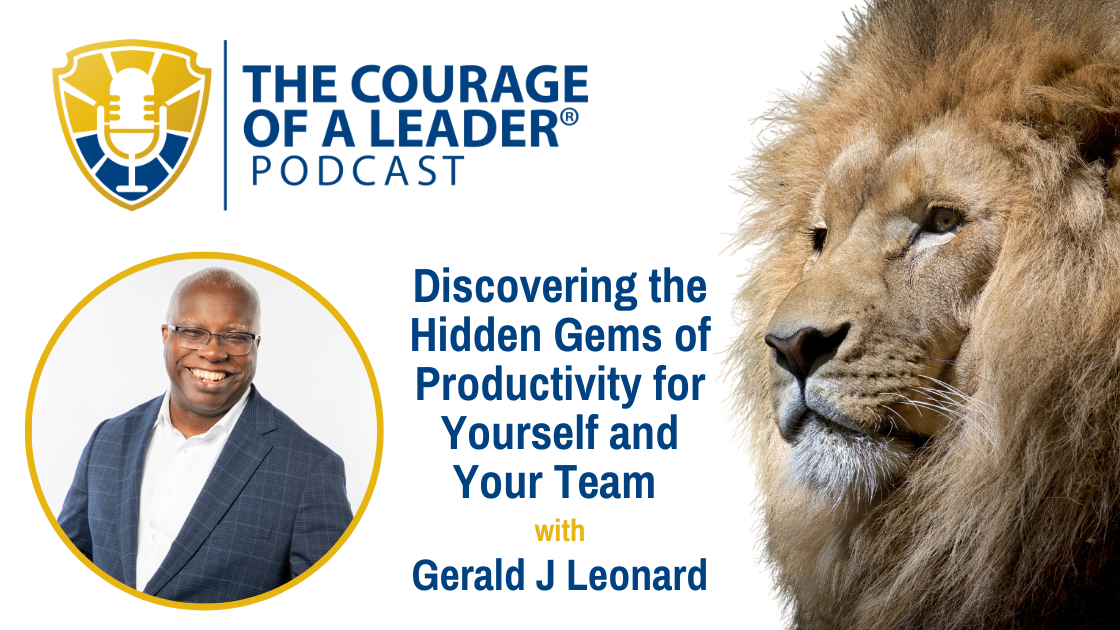
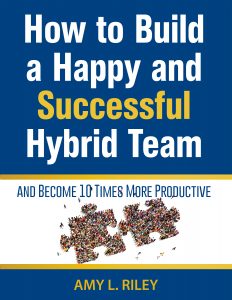
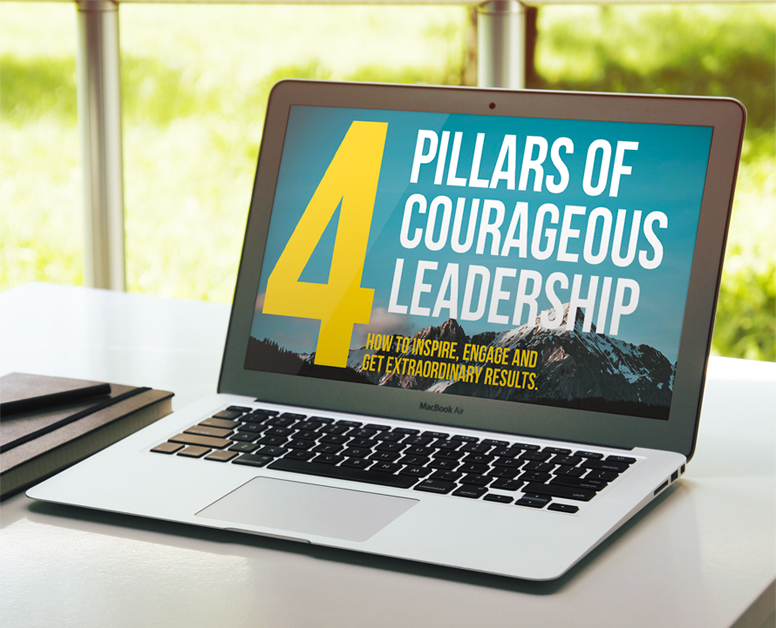 A Summary of The Courage of a Leader® 4 Pillars
A Summary of The Courage of a Leader® 4 Pillars